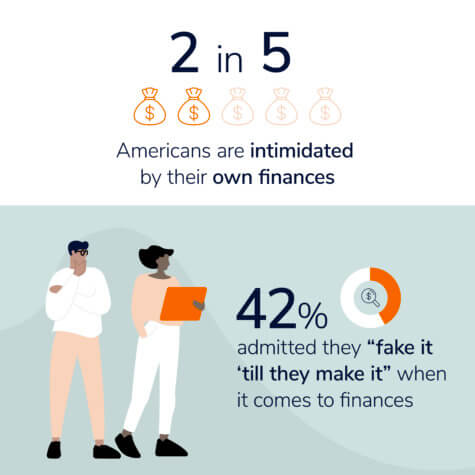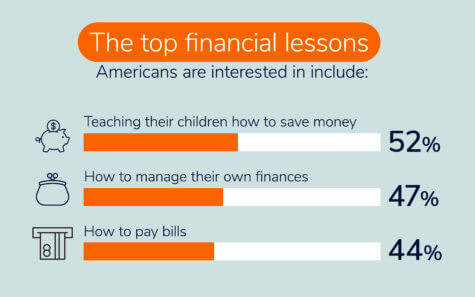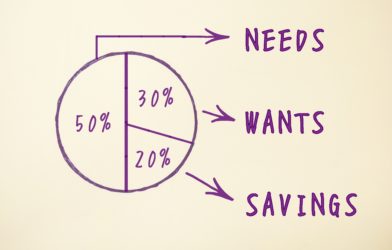While most people love money, a recent study finds many don’t like having to actually think about their money. Nearly half of Americans feel intimidated by their own financial situation.
That’s according to a 2021 survey of 2,000 people about their knowledge of their own finances. Specifically, researchers find that millennials are the most out of touch in that arena. Millennials, between 25 and 34 years-old, are also the most likely to “fake it ‘till they make it” when it comes to managing their money — with 57 percent saying this in comparison to just 42 percent of all other Americans in the poll.
Seven in 10 respondents feel so lost they’ve resorted to teaching themselves important aspects of their finances, such as budgeting, credit card interest, and investing.
Financial literacy is just out of reach
Conducted by OnePoll on behalf of Ria Money Transfer, the survey reveals the most complicated finance topics Americans still struggle to understand are how the stock market works (32%), how to invest (30%), and the difference between stocks and bonds (27%).
Other common financial hurdles include doing taxes (22%), planning for retirement (20%), and understanding what a 401K is (19%). Just over half the poll (52%) want to turn their financial confidence around and learn more about their finances, but don’t know where to go for help. Another 50 percent struggle with wanting to invest their money without knowing where to start.

The average person believes they need to save about $3,881 in order to start investing. Nearly one in four (23%) think the average 30-year-old should have at least $10,000 in their savings account. Yet two in five are too afraid to ask a professional for help because they feel like they can’t afford it (42%), are embarrassed to ask (40%), or simply don’t know where to get help from (39%).
“Financial literacy is much more than just knowing how to save. It is an essential skillset which is often overlooked and typically underestimated,” says Taylor Kwan, VP of Financial Planning and Analysis at Ria Money Transfer, in a statement. “This knowledge is essential for everyone regardless of age or gender. Any improvement in financial literacy will have a significant impact on people’s ability to provide for themselves and for their families in the future.”
Are money matters still a boys’ club?
A battle of the sexes may also be to blame for America’s financial illiteracy. Half of female respondents (51%) still think finances and investing are male-dominated sectors, with even more men agreeing with this (54%). Others choose not to ask for help because they don’t think they understand finance terms (33%) or don’t have enough time (28%).
When they finally do seek out advice, respondents focus most frequently on saving for the future (35%), investing (32%), and maintaining a budget (28%). Forty-four percent feel like they’re left in the dust because their friends and family know more about finances than they do. Another 65 percent trust their families with information about their finances.

Perhaps this is why half of respondents (49%) are determined to learn more about their finances; so they can teach their own children about important financial decisions in the future. Out of all the basic financial lessons out there, Americans say they’re most interested in teaching their children how to save money (52%), how to manage their own finances (47%), and how to pay bills (44%).
“Online banking and other financial services are becoming more globalized and accessible, offering people options to save, invest, and send money, which can represent a lifeline for millions,” explains Gabrielle van Welie, Global Content Manager at Ria Money Transfer.
This article was first published on StudyFinds.com.












